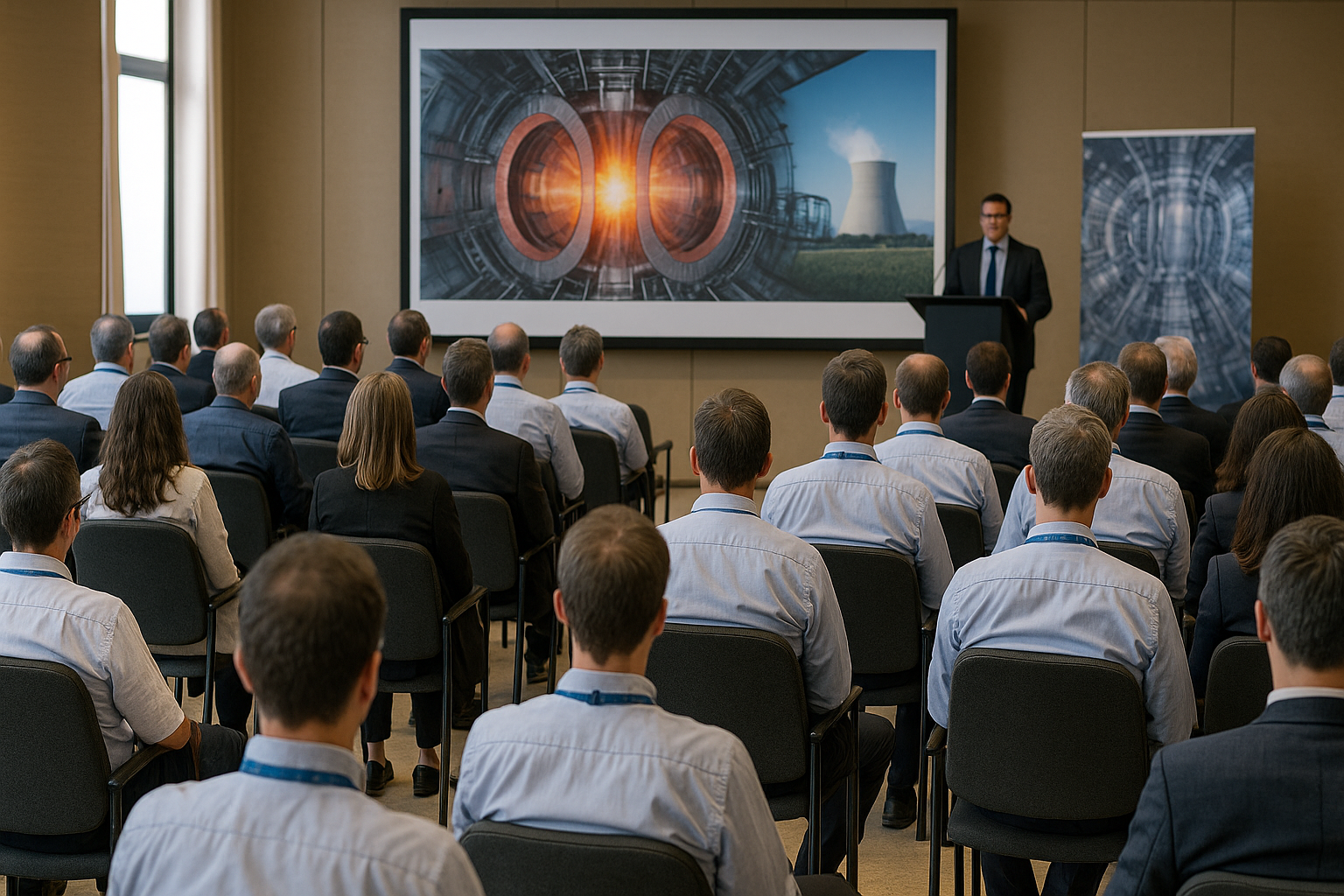Global Push Accelerates for Universal Nuclear Liability Regime under CSC Framework
Industry participants emphasized the critical role of the CSC in establishing a comprehensive nuclear liability regime that fosters legal clarity for all parties involved in nuclear projects.

- Country:
- Austria
Over 100 delegates from across the globe convened in Vienna last month to advance the establishment of a universal nuclear liability regime under the Convention on Supplementary Compensation for Nuclear Damage (CSC). The Fifth Meeting of the Contracting Parties and Signatories to the CSC took place at the International Atomic Energy Agency (IAEA) headquarters from 23 to 26 June 2025, underscoring increasing momentum toward a globally coordinated framework that enhances legal certainty and investor confidence in nuclear energy projects worldwide.
Broad International Participation
The meeting brought together over 100 representatives from 17 Parties and Signatories to the CSC, including Argentina, Australia, Canada, Czech Republic, Ghana, India, Indonesia, Japan, Lithuania, Montenegro, Morocco, Peru, Philippines, Romania, Senegal, United Arab Emirates, and the United States. These participants engaged both in-person and via online platforms, reflecting the global interest in advancing the CSC’s objectives.
Additionally, delegates from 18 invited observer countries—such as Armenia, Brazil, China, Germany, Mexico, the United Kingdom, and Viet Nam—participated alongside representatives from key international stakeholders, including the nuclear industry, insurers, lenders, the European Union, and the OECD Nuclear Energy Agency. These diverse voices contributed valuable insights into the convention’s operation and the evolving international landscape of nuclear liability.
Enhancing Legal Certainty for the Nuclear Sector
Industry participants emphasized the critical role of the CSC in establishing a comprehensive nuclear liability regime that fosters legal clarity for all parties involved in nuclear projects. By providing a standardized liability framework, the CSC helps minimize uncertainties along the supply chain and boosts confidence among operators, insurers, suppliers, investors, and lenders.
Ben McRae, Chair of the meeting and Assistant General Counsel for Civilian Nuclear Programs at the US Department of Energy, summarized this consensus: “The CSC is the best way to address nuclear liability, since it provides legal certainty, minimizes supply chain concerns, and increases investor confidence.”
Addressing Cost Implications and Encouraging Wider Adoption
A specialized panel examined how nuclear liability frameworks, including the CSC, influence the costs of nuclear power projects. Discussions highlighted that clear liability rules can reduce financial risk premiums and facilitate investment, ultimately supporting more affordable nuclear energy deployment.
The meeting also focused on a prospective amendment to the CSC designed to encourage broader membership by eliminating the requirement for States without nuclear reactors to contribute financially to the convention’s supplementary international fund. This amendment is viewed as a crucial step toward expanding global adherence and fostering a truly universal liability regime.
Growing Momentum Toward Universal Participation
“The meeting successfully demonstrated growing momentum towards broad adherence to the CSC, which already covers approximately 40 percent of the world’s nuclear power plants,” said McRae. He emphasized that the CSC offers the only viable pathway to universal participation in a global nuclear liability framework, which is essential to unlocking nuclear energy’s full potential as a safe, secure, clean, and affordable energy source.
Anthony Wetherall, Head of the Nuclear and Treaty Law Section at the IAEA Office of Legal Affairs, reiterated the CSC’s significance: “The CSC is an important building block in establishing a global nuclear liability regime, as called for annually by the IAEA General Conference.” He noted that current efforts to amend the convention to reduce financial obligations for non-reactor States reflect a practical approach to incentivizing wider ratification.
Historical and Operational Context of the CSC
Adopted under IAEA auspices in 1997, the CSC remains the only international nuclear liability convention encompassing a large share of operational nuclear power reactors globally—approximately 180 reactors, representing 43 percent of the worldwide total. The convention currently has 11 Parties, including Argentina, Benin, Canada, Ghana, India, Japan, Montenegro, Morocco, Romania, United Arab Emirates, and the United States, alongside 11 Signatories such as Australia, Czech Republic, Indonesia, Italy, Lithuania, Peru, Philippines, Senegal, and Ukraine.
Functioning as an ‘umbrella’ agreement, the CSC covers countries party to other international nuclear liability conventions or those with national legislation aligned with its core principles. This harmonization facilitates smoother cross-border cooperation and liability assurance in the event of nuclear incidents.
The IAEA supports CSC implementation through tools such as its online CSC calculator, which enables States to model potential contributions to the supplementary international fund under various scenarios.
Ongoing International Cooperation and Secretariat Role
Since the inaugural meeting of CSC Parties and Signatories in Ottawa in 2019, the IAEA has served as Secretariat and convenor of regular meetings to promote ongoing dialogue, collaboration, and convention development. The Vienna meeting underscored the IAEA’s continued commitment to facilitating global efforts toward a robust, equitable nuclear liability regime.
Looking Ahead: Strengthening Global Nuclear Safety and Investment Confidence
As nuclear energy remains a cornerstone of efforts to meet climate goals and energy security, the CSC framework plays an increasingly vital role in assuring all stakeholders that liabilities are clearly defined and manageable. The international community’s growing engagement at the Vienna meeting signals a collective determination to solidify legal foundations that underpin nuclear development worldwide.
The anticipated amendment and expanded participation will help bridge remaining gaps and foster a resilient, universally accepted system of nuclear liability, thereby supporting the safe, secure, and sustainable growth of nuclear power globally.










